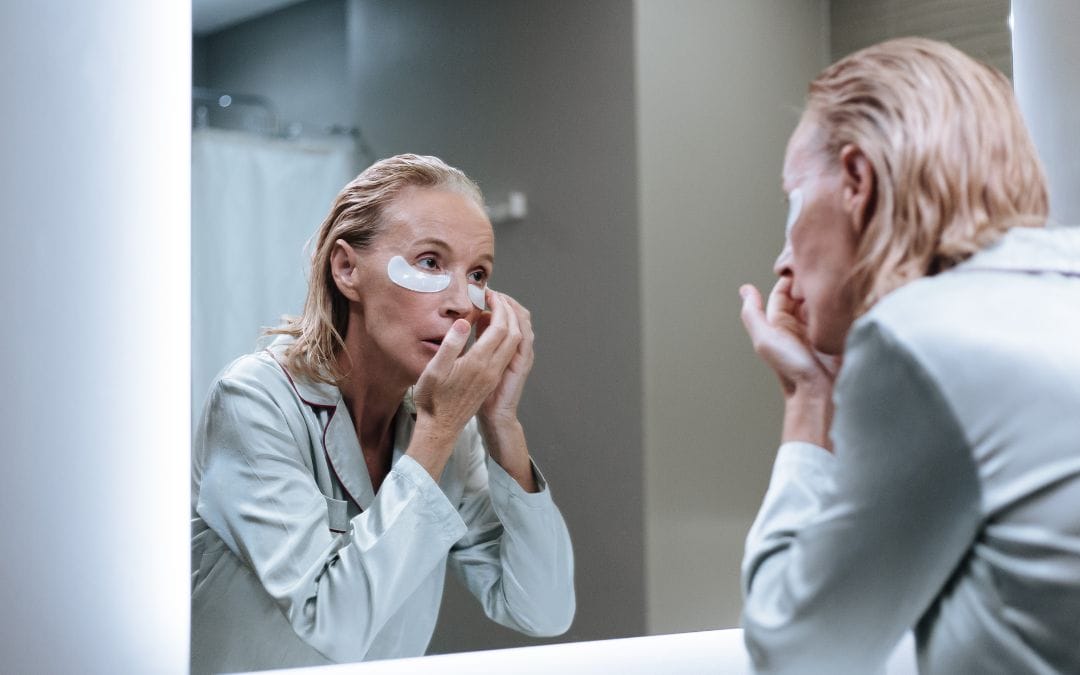It’s a simple fact: skincare is for everyone! A thorough morning or nighttime care routine isn’t just a quick face rejuvenation but an act of self-love. As we age, our skin naturally starts to change—you might have noticed feeling a little drier or seeing new skin textures.
If you want to keep your healthy glow, here are our seven top tips for senior skincare:
1. Wash Gently
It’s a common mistake: when you wash your body, are you gentle, or do you quickly scrub all over? Next time you wash up, opt for a calming, moisturizing soap and a soft cloth. Use warm water over hot, as hot water can strip the skin of natural oils. Try to keep it under 10 minutes and pat your skin dry to leave some water on the skin.
2. Moisturize Regularly
After washing, apply a moisturizing cream or lotion. This step in your routine will help ease dryness and restore your skin’s protective barrier. Use an ointment over a lotion or cream for extra dry spots. For more sensitive skin, purchase fragrance-free moisturizers, as certain fragrances may cause added irritation.
3. Hydrate
When you stay hydrated, so does your skin. Unfortunately, dehydrated skin is dry, itchy, and dull. Drinking enough water allows us to hydrate our skin from the inside out. Incorporate healthy foods into your diet and always keep a water bottle nearby. If your skin still feels dehydrated, consider using a humidifier. A humidifier can add moisture to the air in your living space. Aim for between 45 percent to 60 percent indoor humidity to reduce irritation.
4. Update Your Products
As your aging skin changes, the products you use should also change. As previously mentioned, choose fragrance-free options. Look for products with moisturizing ingredients like glycerin, hyaluronic acid, and lanolin. Skip oily products (like bath oils) that can increase the risk of slips and falls. Older adults may also choose to use serums, retinol creams, toners, or antioxidant creams for added hydration and benefits. These products can help even out skin tone and help eliminate dark spots.
5. Use Sun Protection
This tip is one you can’t forget! You probably already know why sunscreen is a vital part of senior skincare. Perhaps you’re still aiming to prevent wrinkles or want to protect your skin against potential cancer. No matter your goal, here are a few helpful tips to protect your skin from the sun:
- Apply sunscreen daily: even on cloudy or winter days, don’t leave the house without SPF 15+
- Wear protective clothing: lightweight long sleeves and pants, wide-brimmed hats, and sunglasses with UV protection are great options
- Seek shade during peak hours: the sun is strongest between 10 am and 2 pm daily
6. Examine Your Skin Regularly
It is essential to pay attention to your skin’s condition at any age. Check-up on your skin regularly, whether by yourself or with the help of a caregiver. Even with the best use of sun protection, skin cancers can occur. However, when found early, many skin cancers do not spread and require little treatment beyond removal. Pay close attention to birthmarks and moles and use the helpful ABCDEs of skin cancer to indicate areas of concern.
7. See a Dermatologist
Consider seeing a dermatologist if you want expert advice or a routine specifically tailored to your needs. A dermatologist can address all your skincare questions and concerns—they’re the experts! They can also help identify skin abnormalities, recommend OTC products, and prescribe medicated creams or ointments.
Senior Skincare Matters
Many people forget that our skin is the body’s largest organ. Just as you care for the rest of your body, remember the importance of skincare as you age. Skin changes as we grow older, so skincare routines should change, too!

